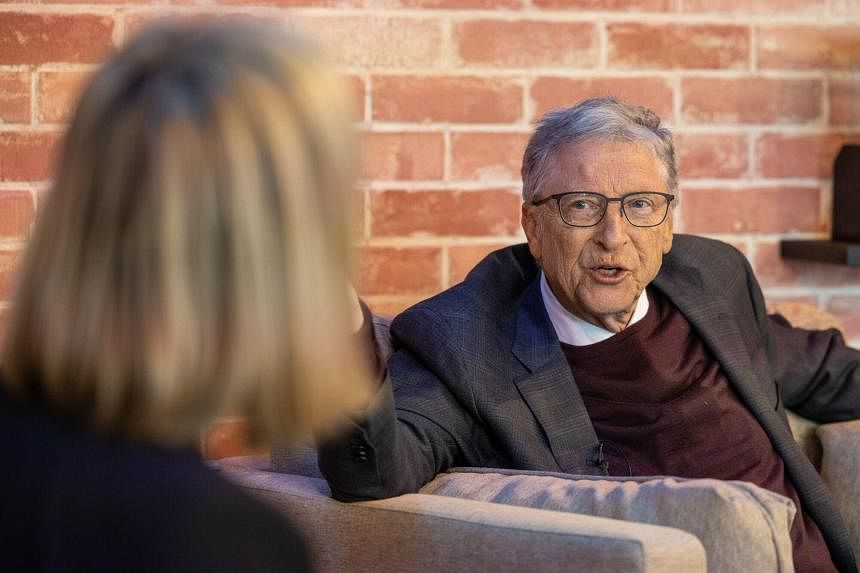DAVOS, Switzerland – This is a big year for democracy. Nearly half of the world’s population will have the option to vote in a national election in 2024. The last time many of these countries went to the polls, there was no ChatGPT.
These are two topics that will keep coming up during panels and side events on the promenade this week at the World Economic Forum in Davos, Switzerland. Often, the questions are about how one will affect the other.
Some leaders in artificial intelligence (AI) spoke at the Bloomberg House at Davos on Jan 16. They all said they took the threat of AI on elections seriously, but were split on the likelihood of disruption.
Microsoft chief executive officer Satya Nadella somewhat downplayed the risks.
“It is not like this is the first election where disinformation, or misinformation, and election interference is going to be a real challenge that we all have to tackle,” he said.
Later in the day, OpenAI CEO Sam Altman echoed that sentiment, but expressed more uncertainty.
“I don’t think this will be the same as before,” he said. “It is always a mistake to try to fight the last war.”
Speaking in an interview with Bloomberg’s Francine Lacqua, Microsoft co-founder Bill Gates predicted that the “bad guys will be more productive” with AI.
Meanwhile, Salesforce CEO Marc Benioff suggested that social media poses a bigger risk to the democratic process than AI does.
“Regulators have not done their job,” he said.
OpenAI, which counts Microsoft as its largest investor, is quite focused on reducing the potential for political misuse of its tools such as ChatGPT and Dall-E, said Mr Altman.
Mr Altman and Mr Nadella attended a meeting in May 2023 with United States Vice-President Kamala Harris to discuss AI risks.
OpenAI will soon release for testing a tool that can identify AI-generated content, and will digitally watermark material generated by Dall-E, the start-up said on Jan 15. And it reiterated that the use of OpenAI models for political campaigning is not allowed.
“Our mind is not at ease,” Mr Altman said. “We are going to have to watch this incredibly closely this year.”
As for how politics will impact AI, Mr Altman was less concerned.
“I believe that America is going to be fine, no matter what happens in this election. I believe that AI is going to be fine, no matter what happens after this election,” he said.
Ms Anna Makanju, OpenAI’s vice-president of global affairs, said she was encouraged by proposed regulation being put forward by US President Joe Biden and the European Union.
“What has struck me and has been really remarkable is that the conversation around AI has remained very bipartisan,” she said.
Mr Altman agreed, sort of: “Both parties hate it.” BLOOMBERG

